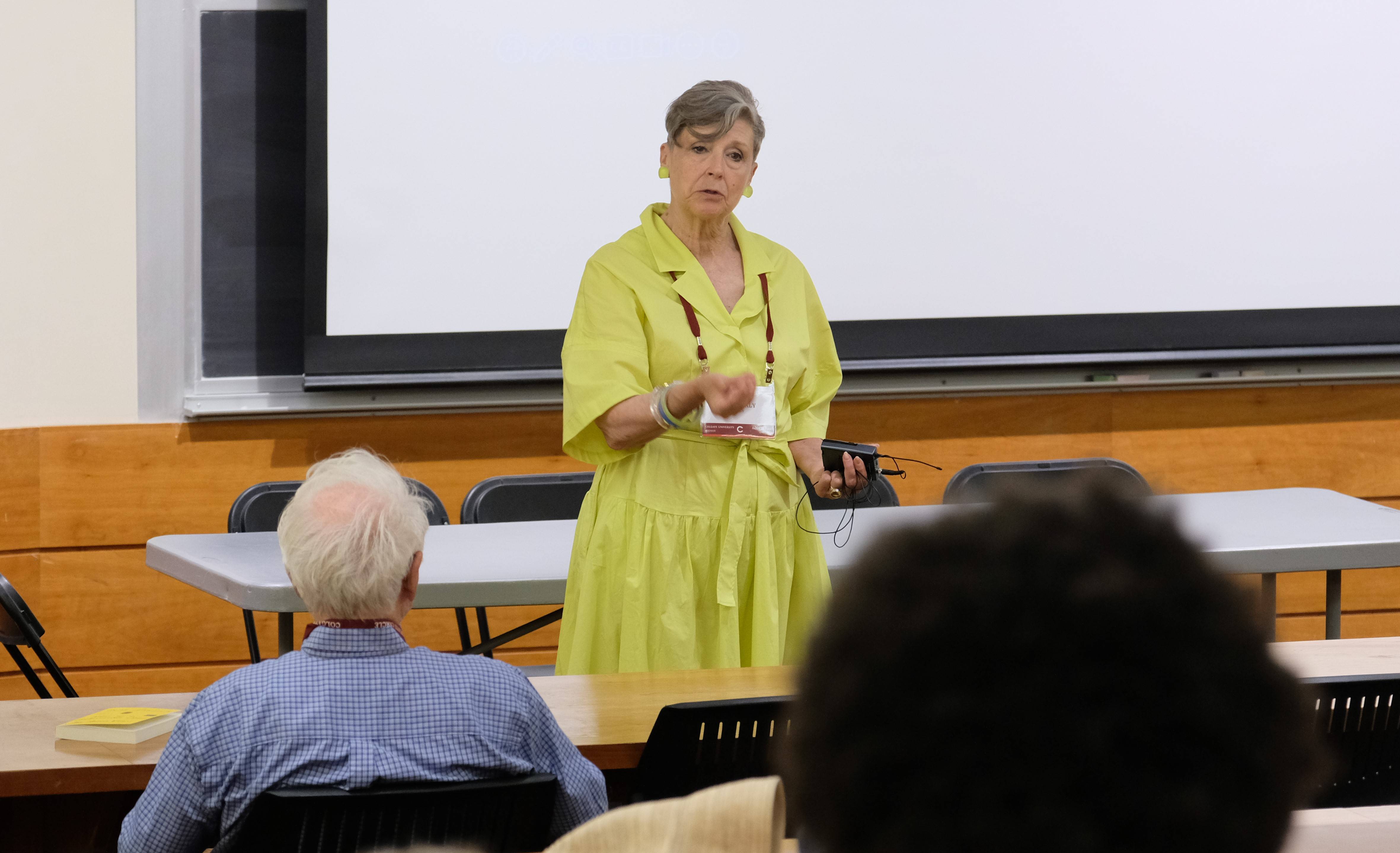It was a hot day when Professor Ellen Kraly gave her Reunion College lecture on a global hot topic: “The Search for Safe Haven: Global, Regional and Local Dimensions of Refugee and Forced Migrations” on Friday, June 2, 2023.
The talk’s description was summarized as a “consideration of the geography of refugee and forced migrations, and population displacement at several scales. Beyond the international, we will give particular focus to national responses to refugee and forced migrations, with particular focus on issues in U.S. refugee and asylum policies and regional and local programs of refugee resettlement in central New York, notable the mission of The Center in Utica.”
Professor Kraly began by outlining some of the history of the international definition of “refugee,” from the 1951 Refugee Convention, which focused on the individual, to the 1984 Cartagena Declaration on Refugees, which recognized the displacement of whole communities — and the 2021 development of a U.N. Global Compact for the principles of safe and orderly migration. Historically, the origins of refugees changed from Europe moving into the United States. Currently, movement is from Syria to Europe, central America to the U.S. southern border, and to Australia.
According to Professor Kraly, 1.1% of the world’s population is forcibly displaced for an estimate of 89.3 million people by the end of 2021. The decade covering 2010–20 could be considered a time of forced displacement with the large numbers of displaced people, including those who were internally displaced, refugees, forcibly displaced, or repatriated.
The U.S. Department of State defines a refugee as someone who applies from outside the borders and an asylee as someone who applies from within the country's borders. There was a pointed stress upon how definitions matter in categorizing the legal status of a person, whether the person is a refugee or an asylee, where the person crossed or contacted authorities, and the policies of the host country.
She then discussed the history of U.S. refugee policy since 1875, its evolution from state to federal responsibility. Covered in the lecture was the idea of who was considered worthy of having been given permanent resettlement; for example, prostitutes and criminals were not allowed unless there were political considerations.
For more information, visit United Nations Refugee Agency site.
